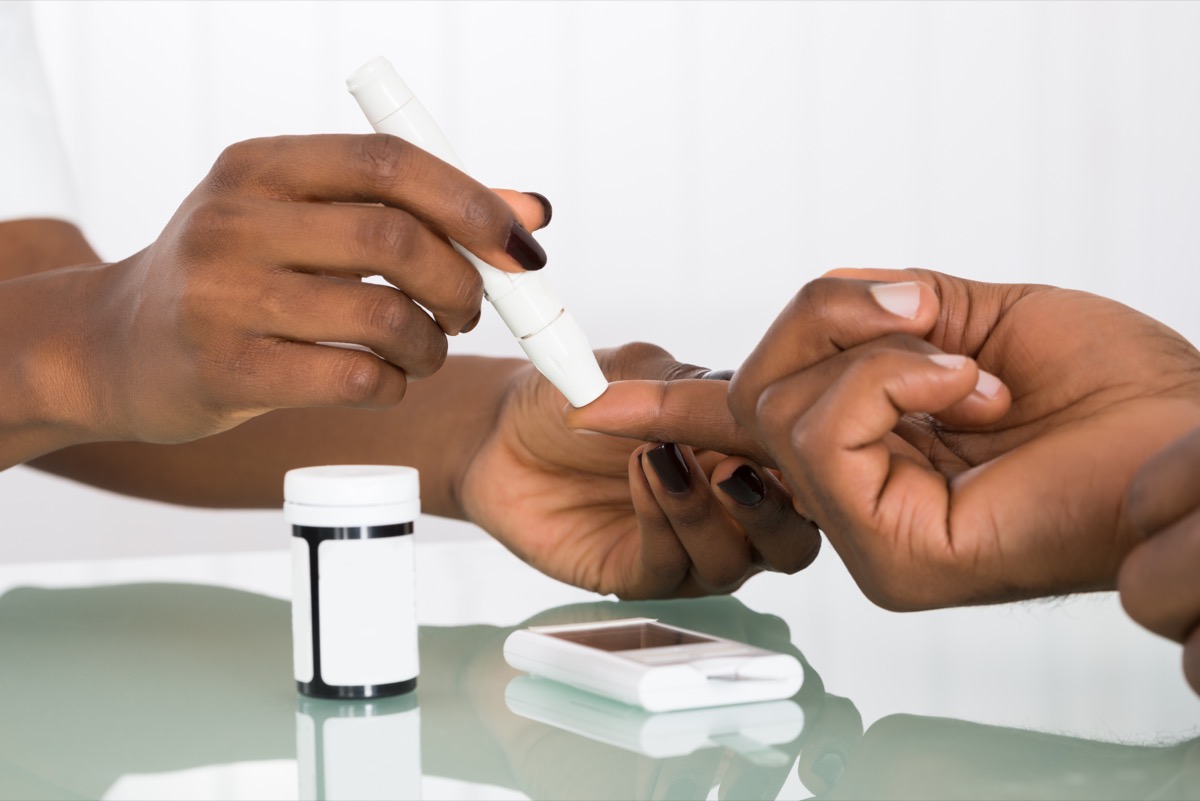5 Surprising Benefits of Taking a Ginseng Supplement Every Day

Asian ginseng—not to be confused with herbs such as American ginseng, Siberian ginseng, or Panax notoginseng—has been used in Chinese medicine for centuries. Now, modern research is helping to substantiate the benefits behind many of its historic uses. Though you should not take supplements with the intention of treating diseases—they’re by definition unproven to do so, otherwise they would be classified as medications—taking ginseng help may improve your health in surprising ways.
Full of antioxidants and anti-inflammatory properties, some studies suggest that ginseng is linked to lower levels of chronic illness and the reduction of a range of symptoms. Wondering what you may stand to gain by taking a daily dose of ginseng? These are the five surprising benefits of ginseng supplements that are backed by science.
RELATED: 7 Surprising Benefits of Taking Magnesium Every Day.
1
It may boost your immune system.

Taking a daily Asian ginseng supplement may boost your immune system and help your body fight off viral respiratory infections such as colds and flu.
According to a 2021 study published in the journal Molecules, ginseng can not only increase the number of immune cells in the body but also improve the efficacy of a flu vaccine.
In that study, the researchers recruited 227 subjects to take either a ginseng pill or a placebo for a period of 12 weeks. Four weeks later, they all received the same flu vaccine. However, the group who took ginseng had two-thirds fewer cases of cold and flu compared with the placebo group.
2
It may improve heart health.

Preliminary research seems to suggest that taking a daily dose of ginseng could come with certain heart benefits.
“Both in vitro and in vivo results indicate that ginseng has potentially positive effects on heart disease through its various properties including antioxidation, reduced platelet adhesion, vasomotor regulation, improving lipid profiles, and influencing various ion channels,” says a 2014 study in the Journal of Ginseng Research.
However, Asian ginseng can have varied effects on blood pressure—sometimes causing it to fall and other times causing it to rise. Until scientists have more conclusive information, you should not take ginseng to manage blood pressure, cholesterol levels, or other heart health measures unless your doctor has recommended it as part of your health plan.
RELATED: 12 Supplements You Should Never Take Together, Medical Experts Say.
3
It may improve Type 2 diabetes.

A 2019 study published in the journal Molecules found that ginseng can be “effective and safe as an additional treatment in the management of type 2 diabetes.” However, the researchers noted that it had “no significant impact on pre-diabetes or healthy adults.”
“Regulation of insulin secretion, glucose uptake, anti-oxidative stress, and anti-inflammatory pathways may be the mechanisms involved with ginseng’s anti-diabetic effects,” the study explains.
However, some of the research is still conflicting—some studies have determined that Asian ginseng can actually raise blood sugar levels. It can also cause your blood sugar levels to fall to dangerous levels if you are taking insulin. Until we have more conclusive research, you should not take ginseng as part of your treatment for diabetes unless your doctor has recommended it.
4
It may lower your cancer risk.

Some research, including a meta-analysis published in 2016, also suggests that Asian ginseng may help to reduce your risk of certain types of cancer.
“We identified nine studies, including five cohort studies, three case-control studies, and one randomized controlled trial, evaluating the association between ginseng consumption and cancer risk; these studies involved 7,436 cases and 334,544 participants. The data from the meta-analysis indicated a significant 16 percent lower risk of developing cancer in patients who consumed ginseng,” the team wrote.
However, ginseng supplements can have adverse effects including nausea, vomiting, insomnia, increased heart rate, and more. You should not take ginseng supplements if you currently have cancer or have a history of cancer unless your doctor recommends it.
RELATED: What Happens to Your Body If You Take Vitamins on an Empty Stomach.
5
It may improve sexual dysfunction in men.

Ginseng supplements are also believed to improve symptoms of sexual dysfunction in men. In particular, a 2008 meta-analysis published in the British Journal of Clinical Pharmacology found that Korean red ginseng can improve erectile dysfunction more than a placebo.
However, the researchers note that in the studies they reviewed, “methodological quality was low on average.” More research is needed to determine the possible benefits of ginseng for sexual dysfunction.
Best Life offers the most up-to-date information from top experts, new research, and health agencies, but our content is not meant to be a substitute for professional guidance. When it comes to the medication you’re taking or any other health questions you have, always consult your healthcare provider directly.
- Source: Molecules: Pharmacological Efficacy of Ginseng against Respiratory Tract Infections
- Source: Journal of Ginseng Research: A review on the medicinal potentials of ginseng and ginsenosides on cardiovascular diseases
- Source: Molecules: Review of Ginseng Anti-Diabetic Studies
- Source: Journal of Ginseng Research: Ginseng consumption and risk of cancer
- Source: British Journal of Clinical Pharmacology: Red ginseng for treating erectile dysfunction